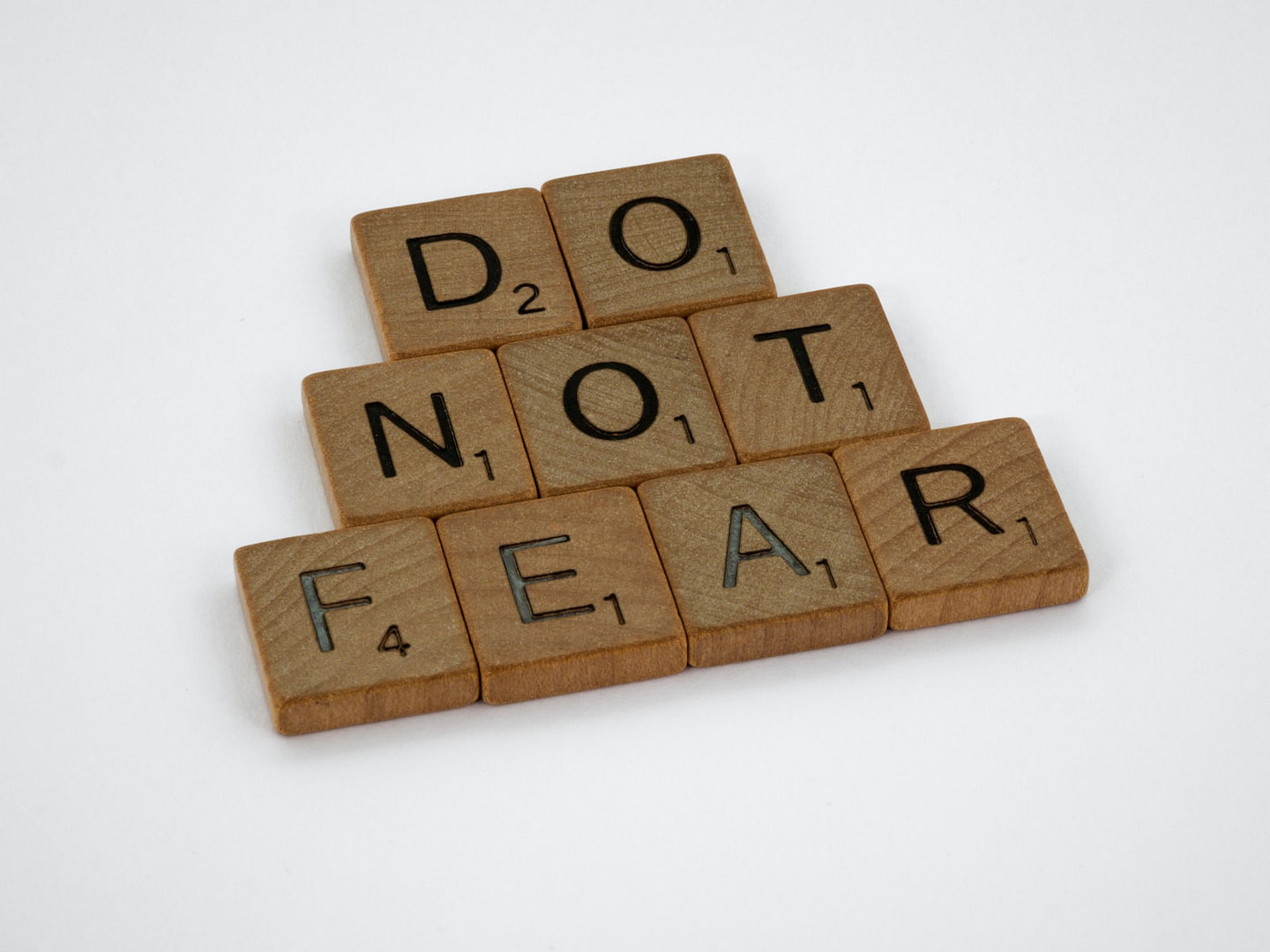Fear is a perfectly normal emotion, and yet…it’s power to affect every aspect of your life shouldn’t be underestimated. If you’re like me – a woman 35+ – you’ve felt and had to deal with the aftereffects of fear in your life, or you’ve seen the effect it can have on others.
While it can be described in many ways, including “False Evidence Appearing Real” and advice can be offered on how to handle it – Face Everything And Rise – that’s not all you need to know.
Fear is NOT all-powerful, though it may seem that way when you’re in it’s grip. It has a lot of power and has specific influence over us as perfectly imperfect human beings. We have the capacity to dream, and dream big. We can create plans on top of plans, on top of plans; we see other people inside and outside of our communities who take risks and achieve their dreams, and yet…we don’t take the steps necessary to support our own dreams and goals.
Chances are there is one big thing holding you back. One thing that keeps you awake at night makes you hesitate before you say yes to something new, and makes you worry about the future.
What is that thing? FEAR.
But you don’t have to be controlled by your fears. Starting right now, today, you can get the upper hand and turn that energy around to make it work for you.
Here are four surprising truths you need to know to take control of your fear and prevent it from slowing you down as you pursue your most dynamic, intriguing, vivacious, and authentic life.
Truth #1: Fear is normal
Don’t beat yourself up too much for feeling fear. Studies have shown that you (and a majority of other human beings) are programmed that way. Fear is hard-wired into the human brain through the limbic system that sits deep in the brain. There are neural networks that will produce fear as part of your normal brain function. By taking control of your mindset, you can free yourself from the fear of failure.
And when you think about it, fearfulness makes sense. You need a certain amount of fear to develop judgment and stay safe. Back in the days of saber-toothed tigers, humans needed fear to survive. It is the root of the fight or flight reflex to danger.
Truth #2: Fear is complex
Fear is not just a chemical reaction in your brain. Fear is composed of many layers starting with instinctive reactions through learned responses.
Learned behavior comes from discovering that particular animals, plants or people are dangerous. In extreme cases, traumatic experiences can lead to phobias or exaggerated fears. If you were bitten by a dog when you were a child, for example, you might become obsessively afraid of all dogs.
Truth #3: Your imagination feeds fear
Your ability to think, reason, and imagine can lead to your fears becoming irrational. You can look at the ocean and imagine it full of sharks; you can walk down a dark street and imagine pickpockets or thieves, or worse. Fear can easily tip over into anxiety when you imagine a danger that isn’t really there.
That can be problematic. If you’re living in a heightened state of fear, you will not be able respond appropriately, in fact, you will be primed to overreact. A fear of flying sets you up for an overreaction to turbulence or even unexpected noises. A fear of snakes may make a stick or belt seem life-threatening.
Your sense of logic can be short-circuited and bypassed by fear when it’s got a strong hold on you.
Truth #4: Fear affects how you act
If you’re constantly feeling fearful or anxious, that will affect the decisions and actions you make in your life. At its worst, fear can render you unable to act at all, leaving you paralyzed, unable to make a conscious choice.
If you don’t master your fears, you will certainly miss out on making your life as fun and happy and successful as it could be. You can choose to take control and use that energy in a constructive, positive way.
Expand Your Knowledge and Declare Your Victory
Knowledge Bomb #1: Focus on What You Can Control
Worrying about the things you can’t control is a waste of your precious time and energy. It literally won’t change a thing. And what’s worse, it can divert your focus from the things you actually can control. When you fear things outside of your control, you have less energy to use on the things where you can make a difference.
What can you control?
- How you respond
- What you think about
- The ways you treat others
- The information you consume
- How you treat your body
- Your self-talk
- Your sleep habits
- How consistent you are
- And much more
When you focus on what you can control, your fears will significantly lessen, and your life will significantly improve.
Knowledge Bomb #2: Choose Gratitude over Fear
Fear is almost always rooted in a scarcity mentality. In other words, you are afraid that you won’t have something you want or desire.
You’re afraid that you’ll lack:
- Love
- Respect
- Money
- Health
- Possessions
- Or something else
Obviously, these are all good things and it’s not wrong to desire them. But it’s easy to become so fixated on them that you become fearful of not having them.
Gratitude completely shifts your perspective, fixing your gaze on the things you already have. It’s hard for gratitude and fear to coexist. They’re like oil and water.
When you feel fear beginning to rise in you, embrace gratitude. Look for ways to be grateful that are specifically related to your anxiety, and you’ll lessen the hold that fear has on you.
Knowledge Bomb #3: Practice Mindfulness
Fear consistently takes you out of the present. Instead of focusing on the here and now, you are constantly worried about what could happen in the future. Worrying about bad things that might happen prevent you from enjoying good things that actually are happening.
Practicing mindfulness keeps you firmly rooted in the present. All of your energy and focus is given to the current moment. Simply put, you are able to be fully present in the present.
Mindfulness, generally speaking, simply means being aware of and savoring the present moment without thought of anything else.
Employ one or more of these knowledge bombs when you’re facing the distraction of fear, and give yourself the time needed to refocus, recenter, and take action.






